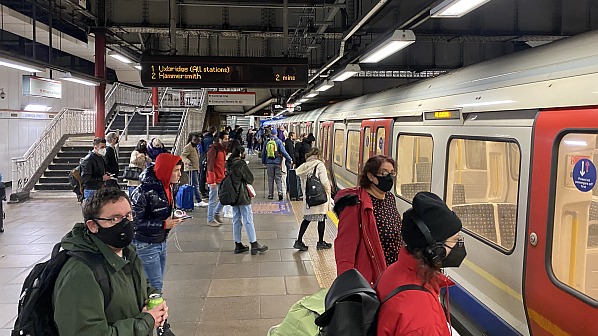MANAGED decline of services and deferral of major upgrades by Transport for London (TfL) has been discussed at a finance committee meeting on November 24, with fears peak services could be cut by up to a quarter and London Underground (LU) trains built in 1972 could still be in traffic in the 2040s.
In a document released prior to the meeting, TfL, the local government authority that manages London’s transport including LU, some heavy rail services, Crossrail and buses, stated in the absence of capital and revenue funding pledges from government planning for the managed decline scenario must now take place.
“We would need to start enacting some changes immediately to start realising the financial savings in future years,” TfL says, adding that the case for additional funding will continue to be made. TfL will also continue to call for support to continue the recovery of passenger demand which would help mitigate the need to take the actions it warns of.
Under the managed decline option, TfL assumes that current commitments are honoured including the rolling stock contract for the Piccadilly Line won by Siemens and the Docklands Light Railway contract won by CAF. The £28bn Crossrail 2 line and the £2.88bn 7.5km Bakerloo Line extension remain paused.
Other impacts include:
- the need to extend the life of all fleets where possible, with the Bakerloo Line and Central Line fleet replacements pushed back until the late-2030s/early-2040s meaning that some of these trains would be almost 70-years-old when replaced, while the Jubilee Line replacement would not start until the mid-2040s at significant extra cost
- work would not start on Piccadilly Line signalling upgrades creating a gap between the completion of current signalling projects and the next phase which would affect internal capability, disrupt the supply chain and delay the capacity benefits offered by the new Siemens fleet
- station capacity upgrades would be put on hold after the current commitments, while third party-funded schemes would also be affected as TfL would not be able to enter jointly funded new station projects
- the London Overground high intensity frequency (HIF) programme on the East London Line would only proceed if it is fully third party funded
- the new station box at Elephant & Castle would be constructed by the developer but TfL would be unable to fit it out to turn it into an operational station
- procurement of new fleets for the Piccadilly Line and DLR is set to continue. However, a review will take place if no further funding materialises
- deferral of renewals creating increased risk of unreliability and future financial risk as well as increased maintenance costs and potentially more speed restrictions
- planned fleet overhauls cannot fully take place, which is expected to lead to a reduction of up to 25% in peak service on some lines, and
- deferral of LRV replacements.
Britain’s government has confirmed that revenue settlement for the remainder of 2021-22 will be considered closer to the expiry of the current funding agreement on December 11. TfL says that negotiations have yet to commence. Confirmation has also been received by TfL that the government does not intend to provide further revenue support beyond March 2023. This means that the funding gap will reach £1.7bn in 2022-23, £2.7bn in 2023-24 and £2.2bn in 2024-25.
TfL is required to make a submission to the Greater London Assembly (GLA) budget process on November 26.
Britain’s government, which has provided more than £4bn in support since the Covid-19 pandemic started, stipulated in the last TfL emergency financial agreement announced in June, when it received £1.08bn, that £500m-£1bn must be raised per year from 2023-24. As yet there has been no agreement reached between the Mayor’s office and government on proposed revenue raising options and therefore no budget assumptions can be made based on TfL having this extra revenue.
Prior to the Covid-19 pandemic, TfL’s annual operating deficit had fallen from £1.5bn in 2015-16 to £300m in 2019-20 and was on track to be converted into a surplus by 2022-23. The pandemic resulted in passenger numbers falling on the LU network by 95%.
TfL says that 72% of its total pre-pandemic operating income comes through fares, compared with 48% in Paris and New York. Figures released on November 24 by the Department for Transport show that passenger numbers on the LU network are 60-65% of pre-pandemic levels. This increased to 75% on the weekend of November 20-21.

